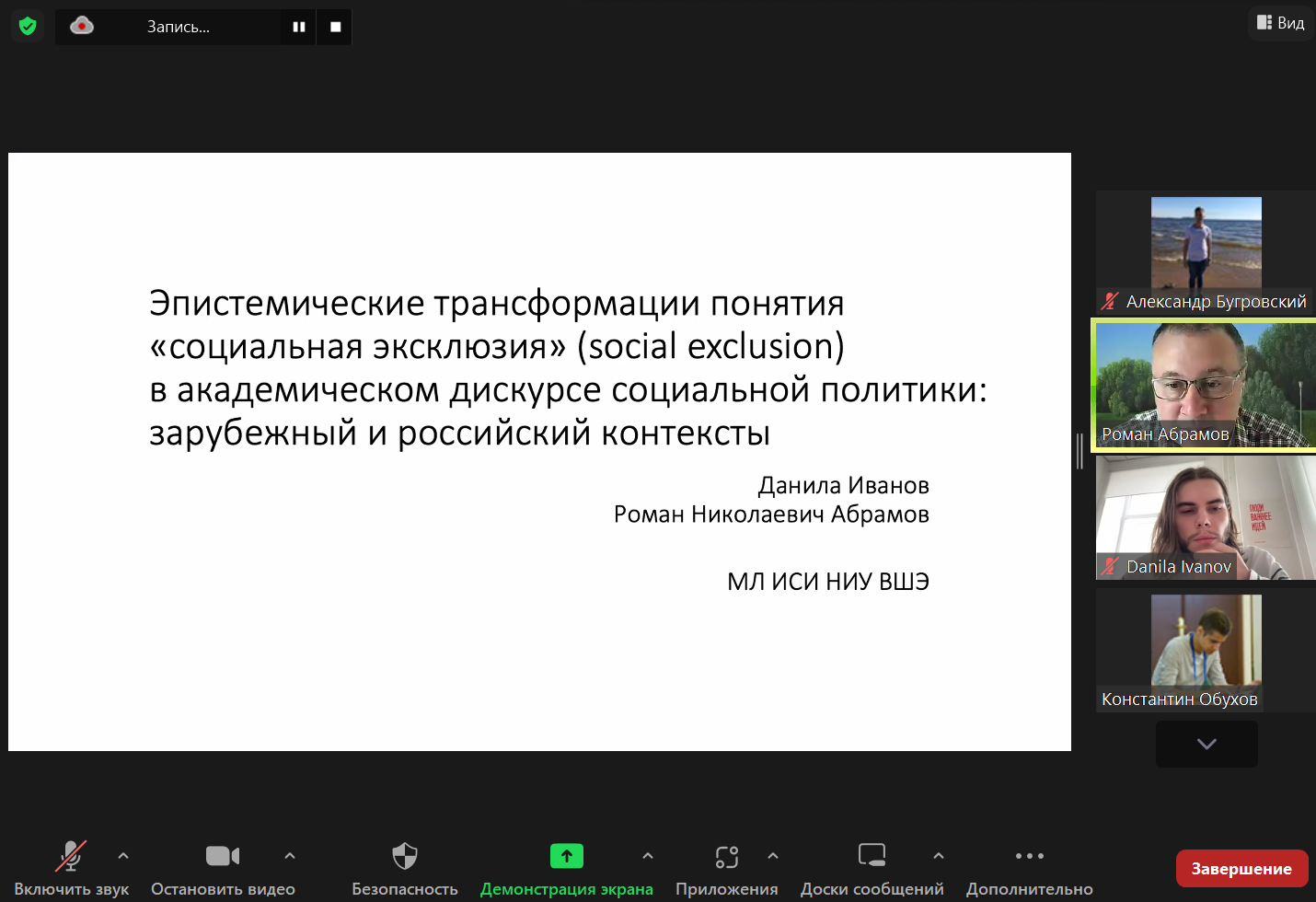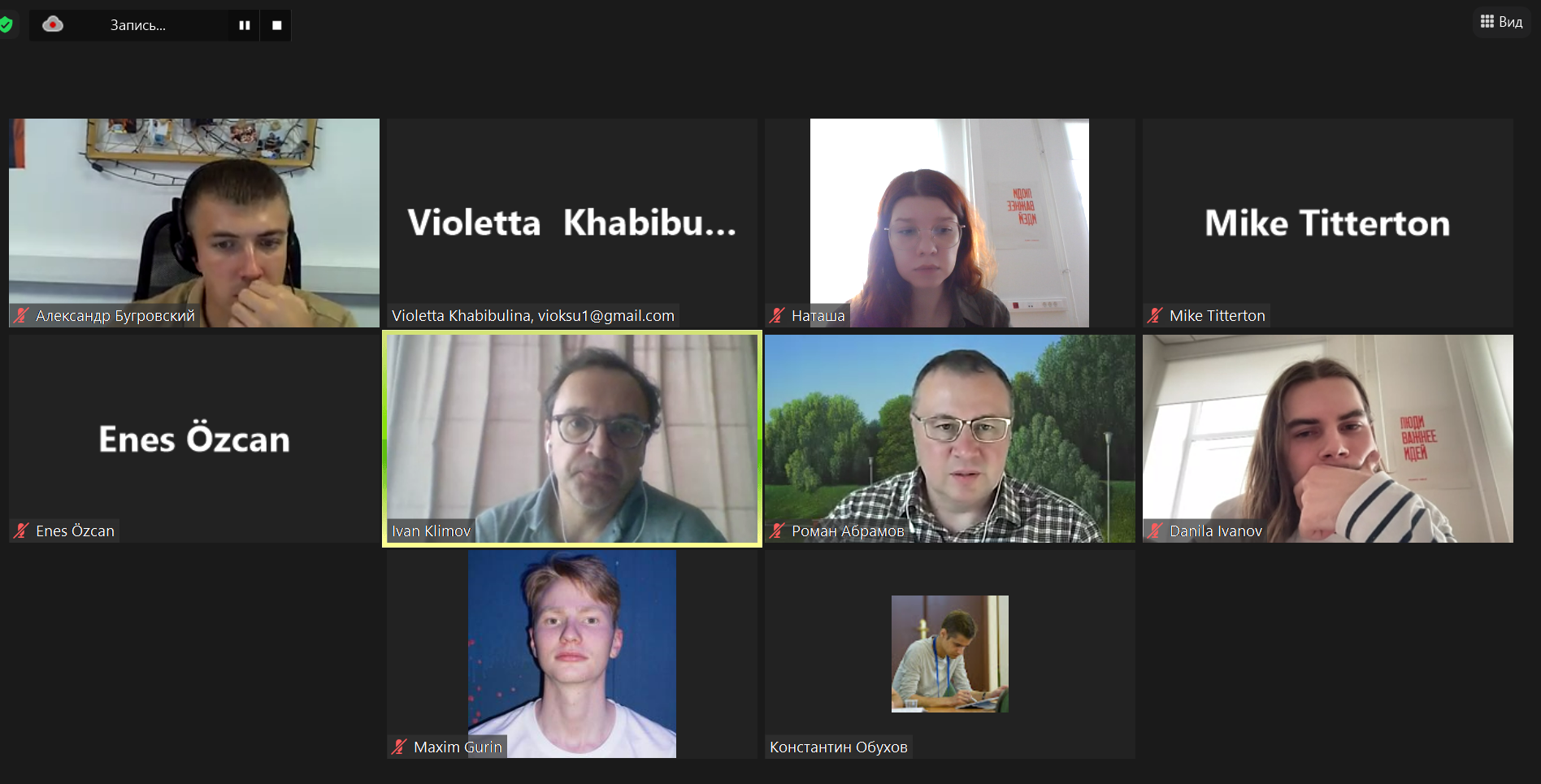Epistemic transformations of the concept of "social exclusion" in the Academic discourse of social policy: foreign and Russian contexts
Roman Abramov and Danila Ivanov made a presentation on the theoretical foundations of the concept of "social exclusion" at the ILSIR seminar. The debater was Ivan Klimov.

On June 20, 2023, at the seminar of the same name, a joint report was held by the staff of our Laboratory: Leading Research Fellow Roman Abramov and Research Assistant Danila Ivanov on the topic "Epistemic transformations of the concept of "social exclusion" in the academic discourse of social policy: foreign and Russian contexts". The report was devoted to a critical examination of the concept of "social exclusion".

First of all, the influence of the origin of the concept from public political discourse was indicated, which implies a number of ideological implicatures (of the French Republican sense), and also relies on the principles of "ordinary" operation.
The next important point was the emphasis on the inconsistency of translation and grammar of the use of the concept of "social exclusion" in the Russian-speaking space. The consequence of this is tautology in definition, intuitionism, as well as the fragmentation of conceptualization.
Further, the authors of the report revealed the subject of the epistemic uncertainty of the concept. In particular, Michel Foucault, the author who introduced this concept into academic discourse, clearly demonstrates the "medieval" nature of "exclusion" (l'exclusion), placing it on a par with "exile" (l'expulsion). As a result of epistemic shifts, exclusivity, however, began to enter into the context of the topic of borders and demarcation, which "neutralized" its "directness" and "situationality", but also turned it into a non-objective concept through the accompanying influence of politicians who softened the concept in official documents.
One of the consequences of the expansion of the concept is the substantial representation of the effects of social exclusion: as if the effects were objectively noticeable for the "excluded" themselves, which is assumed by some socio-psychological and neo-Marxist approaches. Anyway, this explanation leaves as "residual" those cases where the exclusion turns out to be "invisible".
Negative judgments aimed at critical understanding of the concept were described above. The subsequent work of the co-authors will focus on a positive definition of the concept, taking into account the mentioned nuances.
The debater in the framework of the report was Ivan Klimov (Senior Research Fellow at the International laboratory for Applied Network Research). After the main part of the presentation, Ivan Alexandrovich drew attention to the difficulties with the substantive definition of the concept discussed in the report: on the one hand, the topic is covered using the concept of "exclusion", whereas, on the other hand, through the topic of "inclusion". Substitution of concepts with each other is fraught with additional difficulties. In pandan to the semantic analysis of the concept of "exclusion", an array of not only "negative", but also "positive" meanings was added, which can participate in the formation of everyday meaning. Also, commenting on potential approaches to the definition of the concept, Ivan Alexandrovich joined in developing a normative approach and stressed the importance of focusing on the principles of institutionalization (that is, organizational structures) of the processes of social exclusion.



